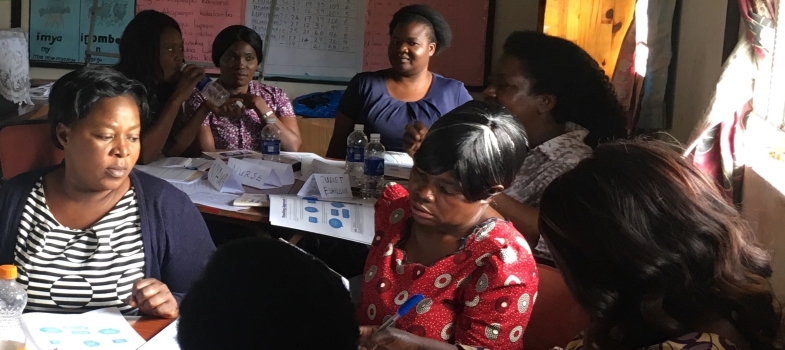Training guide
6. Assessing learning
6.1. Examples of formative assessment (1)
Classroom Example 3.3: Monitoring learning, peer assessment – past tenses and writing
Audio transcript Lucy is teaching Grade 4 learners about awareness and use of the past tense to write short stories. They have done many activities in her lessons over the past week, but she is not sure if all her learners have fully understood and remember the main irregular verbs. In order to assess their learning, she asked them to write a story titled Janice’s visit to the market last week. For this she gave learners a list of 10 verbs, both regular and irregular, which they had to include in their story. While she is correcting the stories, Lucy realises that most learners have clearly understood that all verb forms are the same for the different persons in the past tense. However, she noticed that some learners are still finding it difficult to use the correct forms for common irregular verbs such as go, make and buy for example. In her class list she made notes about how well the different learners had completed the activity. The next day, she sets up an activity where learners had to change sentences which included both regular and irregular verbs in the present to the past tense. Before the activity, using the notes that she had made on her class list, she put learners in groups ensuring that in each group there was at least one learner who had demonstrated good use of past tenses in the writing. As the groups worked, she walked around the classroom paying attention to all learners and ensuring those who had completed the writing correctly were assisting others rather than just giving the correct answer. At the end of the activity, Lucy brought the full class together again. In order to reinforce their learning, she asked learners who had made mistakes in their writing to provide the correct sentences from their group. A few weeks later, Lucy revisited past tenses as part of another topic they were working on. As she walked around the class while they were doing a pair activity, she used her notebook to remind herself of the learners who had struggled in the writing activity, and she was pleased to see that many of the learners who had made errors in their writing were now using more verbs correctly. It took Lucy a lot of time to mark all the work and set up the groups, but when reflecting about this activity, she realised that all learners were now much more confident in using the past tense in their writing. The additional time she had spent in this series of activities to reinforce irregular past tenses had benefitted all learners. |
|
Did you notice:
|
